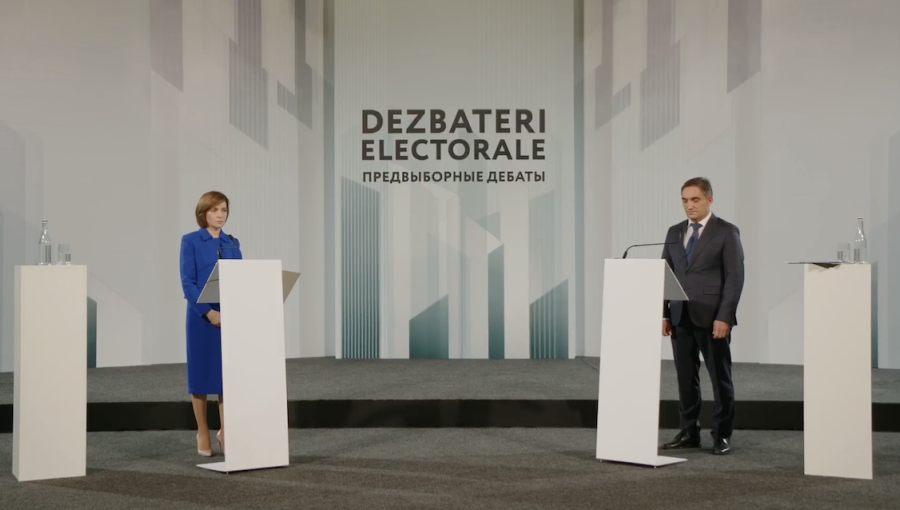Moldova’s sole public debate in the 2024 presidential election took place on October 27, as incumbent pro-EU President Maia Sandu faced her challenger, former chief prosecutor Alexandr Stoianoglo, backed by the moderate pro-Russian Socialist Party.
Despite Sandu’s strong first-round performance with 42% of the vote, Stoianoglo — who received 26% — is well-positioned to narrow the gap with the likely support of other candidates.
Stoianoglo has drawn momentum from Moldova’s sizeable Russian-speaking community, which harbours reservations about Sandu’s pro-EU stance, seeing it as a potential rupture from traditional alliances. Russian-backed oligarch Ilan Shor’s alleged attempts to sway votes against EU membership add another dimension to this contest.
In a key development, third-placed candidate Renato Usatii (14% in the first round) will announce his endorsement on October 28. Usatii, who backed Sandu in 2020 against Socialist then-president Igor Dodon, hinted that he may not repeat that support.
Sandu maintained a combative tone in the debate, reaffirming her pro-EU platform and accusing Stoianoglo of being an instrument of Russian interests. Her approach, aimed at energising her pro-EU base, saw her advocating for EU integration — though she stopped short of calling for Nato membership.
Stoianoglo played to his strengths with Moldova’s Russian-speaking electorate, focusing on unity and minority rights, particularly in Moldova’s north, where ethnic Ukrainian communities and voters in Gagauzia have shown a preference for pro-Russian candidates. Facing some difficulty in speaking Moldova’s official language, he nevertheless sought to appeal to those who share this challenge, framing himself as a voice for ethnic minorities and cautioning against perceived discrimination under Sandu’s leadership.
While Sandu appeared more assertive, the debate’s impact remains complex, with both candidates holding firm within their established voter bases ahead of the November 3 runoff.
